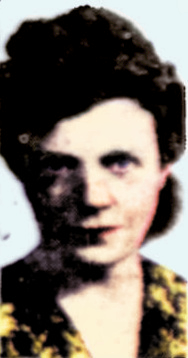The Pittsburgh Press (April 30, 1941)

I DARE SAY —
…
The frozen heart
…
By Florence Fisher Parry
It wasn’t so long ago, measured by years. We were wearing those terrible clothes. I remember, that hung with the waistline at the hips, and skirts only about a foot long. Cloche hats that fitted down over our hair and eyes like helmets. Beads and bangles. Clara Bow bobs.
These were the women, then, who mobbed Charles Lindbergh, tore his neckties off, stole his shirts and hankies from his laundry, had his picture on their bureaus, instead of Rudolph Valentino’s. The hero of the age. The Blond Viking, the dream of every damsel in the world.
When he married Anne Morrow, there wasn’t a girl living who wouldn’t have stepped into her shoes and counted herself the luckiest woman in the world. Their honeymoon was made a travesty, they were fugitives from publicity. When their baby came, it was the darling of the world. When it was murdered, the world went into vengeful mourning. News broadcasters stayed on the air 24 hours a day. Newspaper sales broke every known record.
The Hauptmann trial was the biggest sensation in the history of crime. Enduring a barrage of photographers, on hand to record every emotion, the young father related how he was duped by false clues and led by the nose by extortionists and gangsters.
His next child was a prisoner of unnatural precaution. He spirited it and its mother to England, to France, lived the life of a hunted fugitive, developed a fixation against kidnappers, reporters and news photographers. Shy and reticent by nature, under the barrage of publicity he congealed, froze, atrophied.
He turned to the fixities of truth: science, mathematical calculations, research, even exploration. The vast unpeopled wastes of Brazil, the ancient impassivity of China, attracted him. He became a restless recluse from the world.
The mold congeals
Fixed thus in the warped mold of emotional impassivity, mistrusting every motive of mankind, he turned to the only certainty, the only verity, he knew: the testimony of cold facts; the exactitudes of science.
After an inspection trip to Europe and to England, he reported certain findings. The Russian military air force was overrated. The German military air force was underrated. The British military air force was inadequate. The American military air force was a joke.
His warnings were ridiculed, disputed and ignored. What he said was unpleasant, therefore it could not be true. Besides, it was unpatriotic to concede superiority to Germany. It carried the implication of his approval of the Nazi dream.
You must consider the effect of all this upon a frozen heart.
And, too, you must consider what the cold blue eyes that looked out from this frozen heart, were seeing… England, where he had lived; France, where he had lived, yesterday pledged to eternal tryst, today marching against each other, and the men of de Gaulle’s army committed to kill their brothers… Ancient feuds turned into brotherly love; heroes into traitors, the kiss of Judas but an outmoded symbol of man’s betrayal of man.
Only one thing was unchanging. Only one thing inviolate: the basic verity of science. The everlasting function of its laws.
Men could lie. Men could murder. Men could batter down their brothers. Only science kept its integrity in the mortal melee.
So it became a god to this man with the frozen heart. Science preached the survival of the fittest.
So the man with the frozen heart warned; America, be strong first; bide your time; do not become weakened by precipitous and unprepared participation in an ancient otherworld feud. Build your fortress first; fire the gun later; for stronger than an army with banners (never mind what lofty insignia may be embroidered thereon) is an army with GUNS.
He meant what he said. He was a patriot with a single thought. The thought may have been warped and icy; but he held to it and gave it utterance. Never mind the consequences.
The consequences
He knew all about consequences, this frozen man. When he had been called a hero, he had been torn apart to provide a souvenir for the mobs. When he had searched for his dead child, he had been torn apart. Now the mob was tearing him apart again.
Mobs in peace, mobs in war, mobs in Europe, mobs in America, there was little difference. Sooner or later, they turn on you and tear you apart.
Of course – I suppose – if you have a frozen heart you do not mind so much when they tear you apart.
But I imagine it would have to be a very frozen heart. It is a question, really, how hard a heart can freeze. There is something suspiciously like a pulse in the words before me here:
I am, therefore, forwarding my resignation to the Secretary of War.
I take this action with the utmost regret, for my relationship with the Air Corps is one of the things that has meant most to me in life. I place it second only to my right as a citizen to speak freely to my fellow countrymen, and to discuss with them the issues of peace and war which confront our nation in this crisis.
I will continue to serve my country to the best of my ability as a private citizen.
Respectfully,
CHARLES A. LINDBERGH